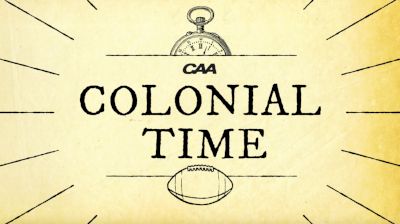The Spring FCS Playoff Race Will Be A Sprint, Not A Marathon
The Spring FCS Playoff Race Will Be A Sprint, Not A Marathon
The road from the Colonial Athletic Association to the FCS Championship will change this spring, with warm temperatures and a reduced field.

The scene just before James Madison kicked off its national championship encounter with North Dakota State in January, where a thin layer of snow covered the Toyota Stadium turf, will not repeat itself this season — not with Frisco’s average temperatures in the low-to-mid 80s during the month of May.
The road from the Colonial Athletic Association to Texas and the FCS Championship also changes in the season to come, becoming more narrow and treacherous as a result of the pandemic-modified slate.
The CAA released its scheduling conventions for the historic spring 2021 season on Sept. 30, one week after the NCAA revealed its plans for the playoffs. Six conference games are guaranteed.
It’s an entirely new brand of March Madness, albeit one every bit as intense as that playing out on the hardwood. And like the basketball event, the overall strength of the CAA could turn the gridiron version into a single-elimination playoff.
Just 16 teams will participate in these FCS Playoffs, a first since 2009 and down from 24 a season ago. The return of the Mideastern Athletic Conference to the mix, after instead sending its champion to the Celebration Bowl since 2015, leaves just five at-large berths.
In 2019, the CAA landed just two of the 14 available at-large bids -- and those two teams, UAlbany and Villanova were both placed into opening-round games.
Indeed, last November’s selection Sunday was a bit disappointing for a conference that went into the month with nine teams still realistically alive for postseason invites. What ensued over the next four weeks was a war of attrition:
Nov. 2:
- New Hampshire (4-3) beat Villanova (6-2)
- William & Mary (2-6) beat Elon (5-3) in five overtimes
- Towson (4-4) beat Delaware (4-4)
- Richmond (4-4) beat Stony Brook (5-3)
- Maine (3-5) beat UAlbany (5-3)
Nov. 9:
- Towson (5-4) beat Stony Brook (5-4)
- UAlbany (5-4) beat Delaware (4-5)
- Maine (4-5) beat Elon (4-5)
Nov. 16:
- Delaware (4-6) beat Stony Brook (5-5)
- UAlbany (6-4) beat New Hampshire (5-4)
Nov. 23:
- Elon (4-6) beat Towson (7-4)
- New Hampshire (5-5) beat Maine (6-5)
The final week of the regular season is especially noteworthy with Towson and Maine teams in strong position for postseason bids losing to opponents no longer in the hunt. For both the Tigers and Black Bears, it was their only loss of the month, but enough to disqualify them from the playoffs.
Extend that window another week, and you can add a last-second Villanova loss to Stony Brook in the final week of October, which contributed to the Wildcats being sent to Southeast Louisiana for the first round instead of earning a bye and a home game.
The outlook-spoiling Seawolves served as a role reversal for Stony Brook, which had its own playoff standing shaken up by CAA depth in 2018 with a regular-season finale loss to UAlbany.
The Great Danes’ win in the 2018 Battle for the Golden Apple stands as a quintessential example of CAA depth and its threat to the playoff picture, and was also a springboard for UAlbany into its historic 2019.
For a spring 2021 successor to UAlbany a season ago, look no further than William & Mary. The Tribe won three games in the month, including the first-ever FCS contest decided with the new overtime rules against Elon, and a Capital Cup defeat of rival Richmond.
William & Mary’s late-season emergence in coach Mike London’s first season could follow a larger recent trend of CAA teams in the bottom-half of the conference getting hot late in one season and parlaying it into a playoff bid at the conclusion of the next. But that’s a trend that comes at the expense of those teams hopeful for the postseason in the present.
How this perennial depth impacts the CAA on a historically crowded bubble should make for one of the most intriguing subplots of the FCS season. From Week 1 on, the heat is on each member of the Colonial to avoid tripping up in the pursuit of Frisco.